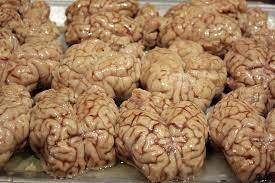Getting smarter isn’t just about memorizing facts—it’s about continuously expanding your thinking, improving problem-solving skills, and adopting lifelong learning habits.
Intelligence comes in different forms, with crystallized intelligence representing accumulated knowledge and fluid intelligence helping you adapt to new challenges.
The good news is that intelligence isn’t fixed; it can be developed with the proper habits and mindset. From exercising and reading to maintaining curiosity and socializing, there are practical ways to sharpen your mind every day.
In this guide, we will explore actionable tips to boost your intelligence, habits to quit, and key traits of knowledgeable people.
How to Get Smarter: Breaking Down Intelligence
Before diving headfirst into the ocean of wisdom, let’s spare a moment to understand the two main types of intelligence: crystallized and fluid intelligence.
Crystallized intelligence is like the treasure chest of knowledge and skills you’ve accumulated over time. It’s your ever-growing vocabulary, a wide array of trivia, and expertise in particular areas. Much like a fine wine, it tends to improve with age.
On the other hand, fluid intelligence is your innate ability to navigate new situations, solve puzzles, and think outside the box. It’s the spark behind your abstract thinking, pattern recognition, and problem-solving prowess. Although fluid intelligence often peaks in early adulthood, it can be honed and sharpened over time.
Tips to Get Smarter
Here are some steps you can apply in your daily life to get smarter every day.
1. Start Exercising

The benefits of physical exercise extend beyond just keeping your body healthy. Engaging in regular exercise also has a significant impact on your cognitive function. Exercise increases blood flow to the brain, which helps it grow and stay flexible.
It also stimulates the production of various hormones, such as brain-derived neurotrophic factor (BDNF), which promotes new neuron growth and new neural connections. To get started, engage in activities like jogging, cycling, or brisk walking. Aim to get at least 30 minutes of exercise most days to boost your brain health.
2. Get Plenty of Sleep
Sleep is essential for your brain to function at its best. During sleep, your brain consolidates and processes the information you’ve learned throughout the day, making it easier to remember and recall later.

Sleeping 7-9 hours of quality sleep is crucial for your brain’s health. Establish a regular sleep routine by going to bed and waking up at the same time each day. Avoid caffeine and other stimulants before bedtime and create a comfortable sleep environment to ensure you get the rest your brain needs to thrive.
3. Meditate Every Day
Meditation is a proven technique to reduce stress, improve focus, and boost cognitive function. Regular meditation practice has been shown to increase grey matter density in the brain, which is associated with improved learning, memory, and emotional regulation.

Even a few minutes of meditation each day can make a significant difference. Try sitting still, focusing on your breath, and letting your thoughts float away. Over time, you’ll notice improved cognitive function, greater emotional resilience, and overall well-being.
4. Eat Brainy Foods
Your brain requires a steady supply of nutrients to function at its best, just like your body. A diet rich in brain-boosting foods like blueberries, fatty fish, nuts, seeds, leafy greens, and whole grains can help keep your brain healthy and happy. Blueberries, in particular, are a great source of antioxidants and have been shown to improve cognitive function.

Fatty fish like salmon and tuna are rich in omega-3 fatty acids, which have been linked to improved memory and cognitive function. Make sure to include these foods in your diet to keep your brain healthy and functioning at its best.
5. Read Books
Reading is an excellent way to improve cognitive function, expand knowledge, and enhance creativity. Regular reading has been shown to improve vocabulary, comprehension, and critical thinking skills.

Whether it’s a mystery novel, a science magazine, or a comic book, try reading something daily to challenge your brain and expand your horizons. You can also join a book club or engage in online discussions to enhance your learning and connect with others who share your interests.
6. Keep Learning New Things
Your brain thrives on novelty and challenge. Engage in activities that challenge your brain, such as solving puzzles, learning a new language, or figuring out how to cook a new dish. As long as you’re learning, your brain is growing.

Learning new skills and knowledge keeps your brain sharp, enhances creativity, and helps you stay engaged with the world. Challenge yourself to learn something new each week, whether a new skill or a new topic of interest.
7. Hang Out with People
Interacting with others is a great way to exercise your brain and improve cognitive function. Having deep conversations, debating a topic, or working on a project together can help you think critically, understand different points of view, and solve problems.

Make sure to spend time with others to keep your brain healthy and happy. Join a social club, participate in a group activity, or volunteer in your community to enhance social connections and boost cognitive function.
5 Bad Habits to Quit to Get Smarter
Now, let’s talk about some habits that might be holding your brain back.
1. Mindless scrolling: Spending too much time on social media or mindlessly scrolling through the internet can waste a lot of time and drain your brain. Try to limit your screen time and fill it with more productive activities.
2. Multitasking: Trying to do too many things at once can hurt your productivity and brain. Focus on one task at a time, give it your full attention, and then move on to the next.
3. Skipping breakfast: Have you ever heard that breakfast is the day’s most important meal? That’s especially true for your brain. Eating a nutritious breakfast gives your brain the fuel to perform at its best throughout the day.
4. Negativity: Constantly focusing on the negative can drain your mental energy. Try to adopt a more positive mindset, focus on your strengths, and look for the silver lining in challenging situations.
5. Living in your comfort zone: Always doing the same thing and not challenging yourself can stunt your brain’s growth. Push yourself to try new things, explore new ideas, and step out of your comfort zone.
Signs of a Smart Person
Smart individuals often exhibit specific characteristics that set them apart. Here are some common signs of high intelligence:
1) Curiosity: Smart people have an insatiable appetite for knowledge. They ask questions, explore new ideas, and are always eager to learn.
2) Adaptability: They can quickly adjust to new situations and solve problems creatively.
3) Open-mindedness: Intelligent individuals are receptive to different perspectives and willing to change their opinions based on new information.
4) Critical thinking: They analyze information objectively and make decisions based on logic rather than emotion.
5) Good memory: While not always the case, many smart people have the ability to recall information quickly and accurately.
6) Emotional intelligence: They understand and manage their emotions well and can effectively navigate social situations.
7) Self-awareness: Smart people often recognize their strengths and weaknesses and actively work on self-improvement.
8) Observation skills: They notice details others might miss and can make insightful connections between seemingly unrelated concepts.
9) Love of reading: Many intelligent individuals are avid readers, constantly seeking to expand their knowledge through books and articles.
10) Ability to focus: They can concentrate intensely on tasks and maintain attention for extended periods.
11) Sense of humor: Often, smart people appreciate wit and can find humor in complex or abstract situations.
It’s important to note that intelligence manifests in various ways, and not all intelligent people will display all these traits. Additionally, practice and dedication can develop many of these characteristics over time.
Related Reads:
Conclusion: Learn How to Get Smarter With These Tips!
Becoming smarter is a journey, not a destination.
You can continually enhance your intelligence by engaging in activities that challenge your brain, staying curious, and avoiding habits that hinder growth. Small, consistent changes—like reading daily, exercising, and maintaining social connections—can impact cognitive function.
Intelligence isn’t just about knowledge; it’s also about adaptability, creativity, and emotional awareness. The most intelligent people are those who never stop learning and evolving. Start incorporating these habits today, and you’ll be on your way to unlocking your full intellectual potential.
So, take the first step today. Your future self will thank you for it!
